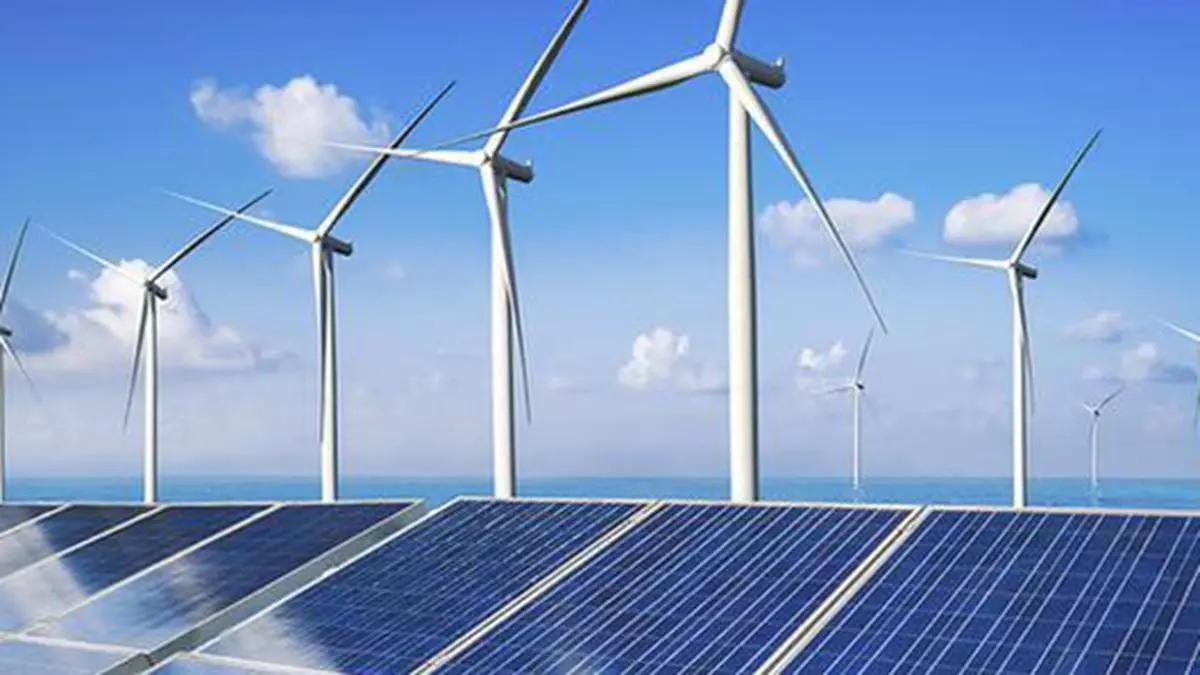
How AI can shape India’s energy transition
COP 29, Baku is working on devising a roadmap to fight climate change.
How we harness AI to overcome this challenge of climate change, economic inequality, and social development will determine not just the future of energy but the future of civilization.
It is unsurprising that The International Energy Agency (IEA) has called energy and AI the ‘new power couple’.
In an era where energy demand is increasingly dynamic, traditional energy grids struggle to meet the demands of an economy increasingly powered by decentralized renewable sources.
What this signifies is that thermal power plants must now function at reduced capacity during daylight hours when the influx of solar energy into the grid peaks.
India, aspiring to meet 50 per cent of its energy demand from non-fossils by 2030, faces a formidable challenge in managing the intermittent nature of renewables while maintaining grid stability.
This is where AI offers its first set of transformative capabilities.
AI’s capacity to process vast datasets — sensors, meters, and weather forecasts — creates a new form of intelligence.
It can predict energy demand with startling accuracy, optimizing supply in real-time to reduce waste and prevent disruptions.
AI systems help reduce losses by automatically rerouting power around problem areas, reducing the duration and impact of outages.
One of India’s flagship renewable energy projects, the Rewa Ultra Mega Solar Plant in Madhya Pradesh, and Telangana’s Kaleshwaram Lift Irrigation Scheme, offers a glimpse of this potential.
The challenge for India, as it integrates more renewable sources into its grid, will be to manage this disruption without sacrificing reliability.
AI will be indispensable in navigating this transition.
Boosting Effectiveness AI holds the potential to reshape the effectiveness of energy systems themselves.
One such use-case pertains to addressing the challenge in energy infrastructure maintenance.
Energy systems — whether in generation, transmission, or distribution — are notorious for being vulnerable to unexpected breakdowns.
AI-driven predictive analytics analyzes historical data from power plants, transmission lines, and substations, identifying patterns that precede system failures.
India’s largest power producer, NTPC Limited has significantly reduced unplanned outages, leading to more reliable and effective power generation.
Further, demand response will also play a role in integrating renewable energy into the grid.
Globally, programs like California’s CAISO and the UK’s National Grid ESO demonstrate how AI- driven demand response can ensure grid stability and reduce reliance on non-renewable backup energy.
In India, initiatives such as those by Tata Power and BESCOM are early but important steps toward this future.
If managed well, demand response could be the cornerstone of India’s energy transformation.
The digitization of grids, while enhancing operational efficiency, creates potential entry points for malicious actors to disrupt essential services.
In this context, AI-driven cybersecurity solutions offer a critical line of defence.
Role of States States must prioritise data-sharing between utilities, industries, and AI start-ups to enable statewide AI solutions.
Second, investing in smart infrastructure — sensors, meters, and AI-ready grids — is essential for data collection.
Third, fostering public-private collaboration in AI will drive innovation, supported by favourable regulations and funding.
Finally, States must invest in developing AI talent in the energy sector through targeted training programmes for engineers, technicians, and policymakers.
If harnessed correctly, AI could be the decisive factor that secures India’s energy future — one that balances growth with sustainability, and technological innovation with environmental stewardship.
The writer is Global Policy Expert, Country Director, Tony Blair Institute for Global Change.
Related Articles
business
PSB’s Record 26% Profit Growth in First Half FY25
November 12, 2024

New Delhi: The finance ministry on Tuesday said that public sector banks (PSBs) have shown robust performance in the first half of the current fiscal year with a 26 per cent growth in net profit, increase in business and decline in non-performing assets (NPAs).
Besides, the aggregate business of 12 PSBs, including top government banks such as State Bank of India and Punjab National Bank, stood at Rs 236.
read morebusiness
Eveready Industries consolidated profit jumps 16% for Q2FY25
November 12, 2024

Dry cell battery major Eveready Industries on Tuesday reported around 16 per cent year-on-year increase in its consolidated net profit to ₹29.
56 crore for the second quarter this fiscal from ₹25.
read morebusiness
Bawna Pagaria, Co-Founder & CEO of Indiazona, On Empowerment of Small Businesses
November 12, 2024

India Economic Summit: Bawna Pagaria, Co-Founder and CEO of Indiazona, speaking at the India Economic Summit (IES) 2024, shared her entrepreneurial journey and insights on empowering small and medium businesses (SMBs) in India.
During her address, Pagaria highlighted the critical challenges facing Indian SMBs and the role of Indiazona in bridging these gaps to foster growth and innovation.
read more